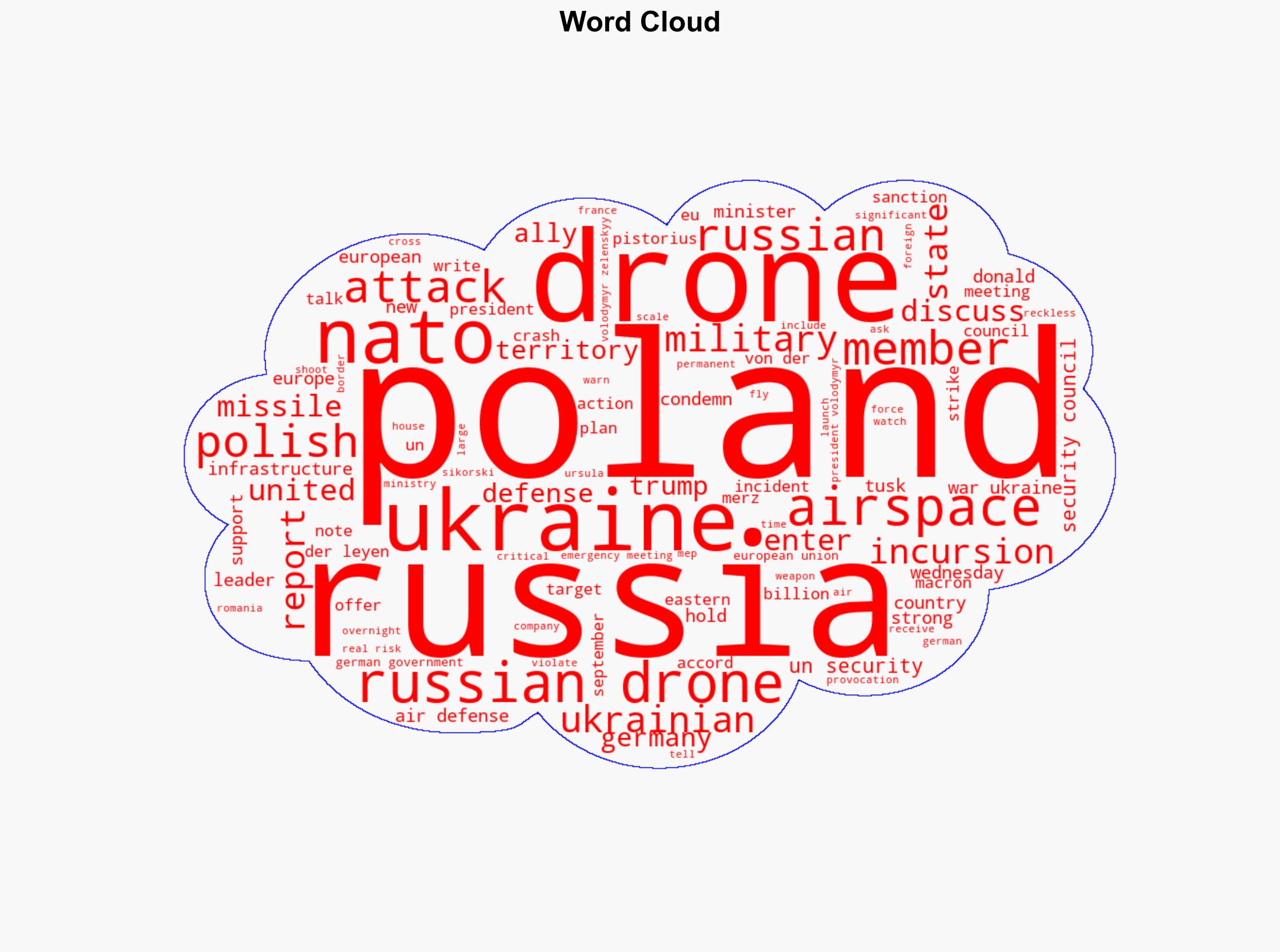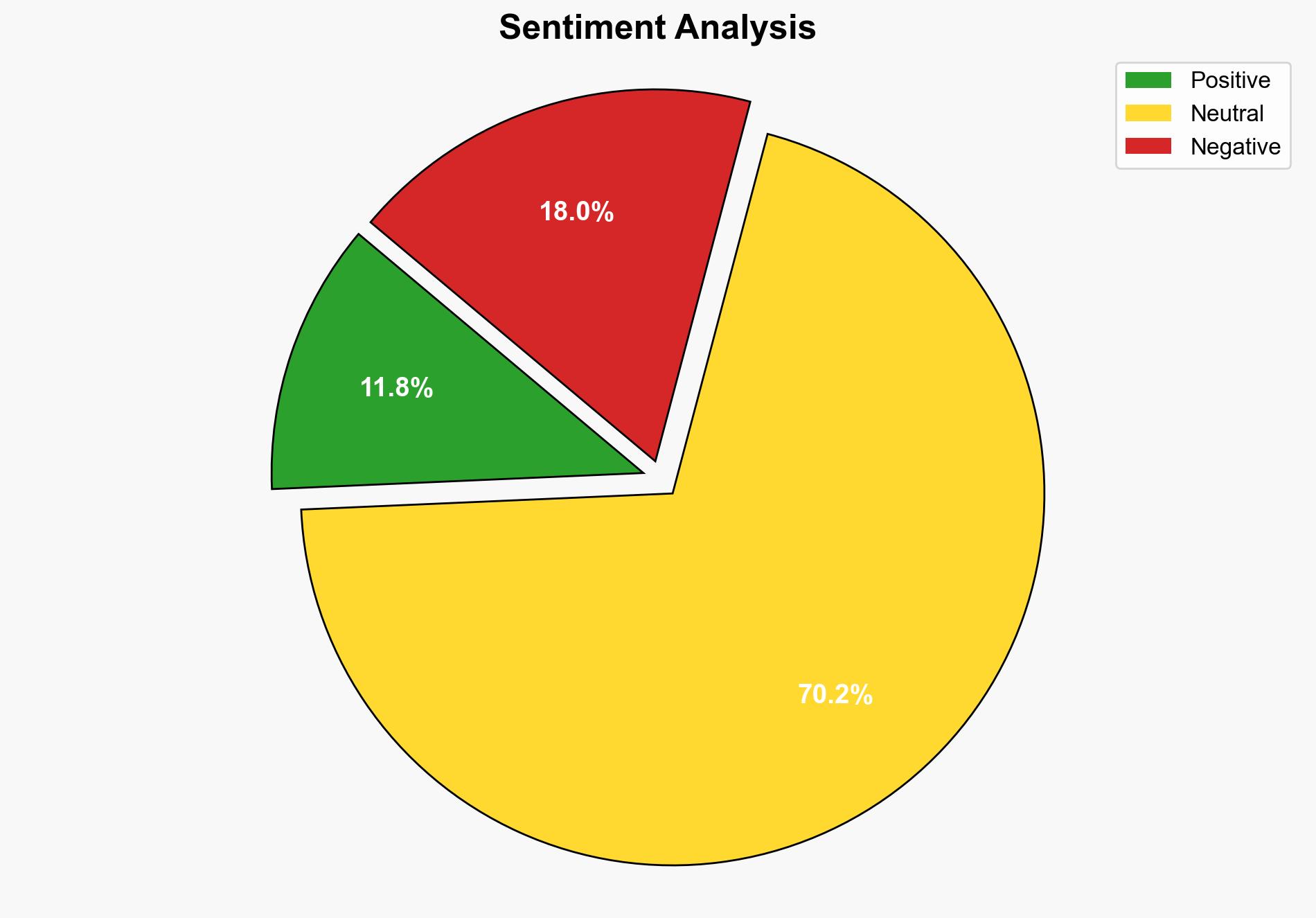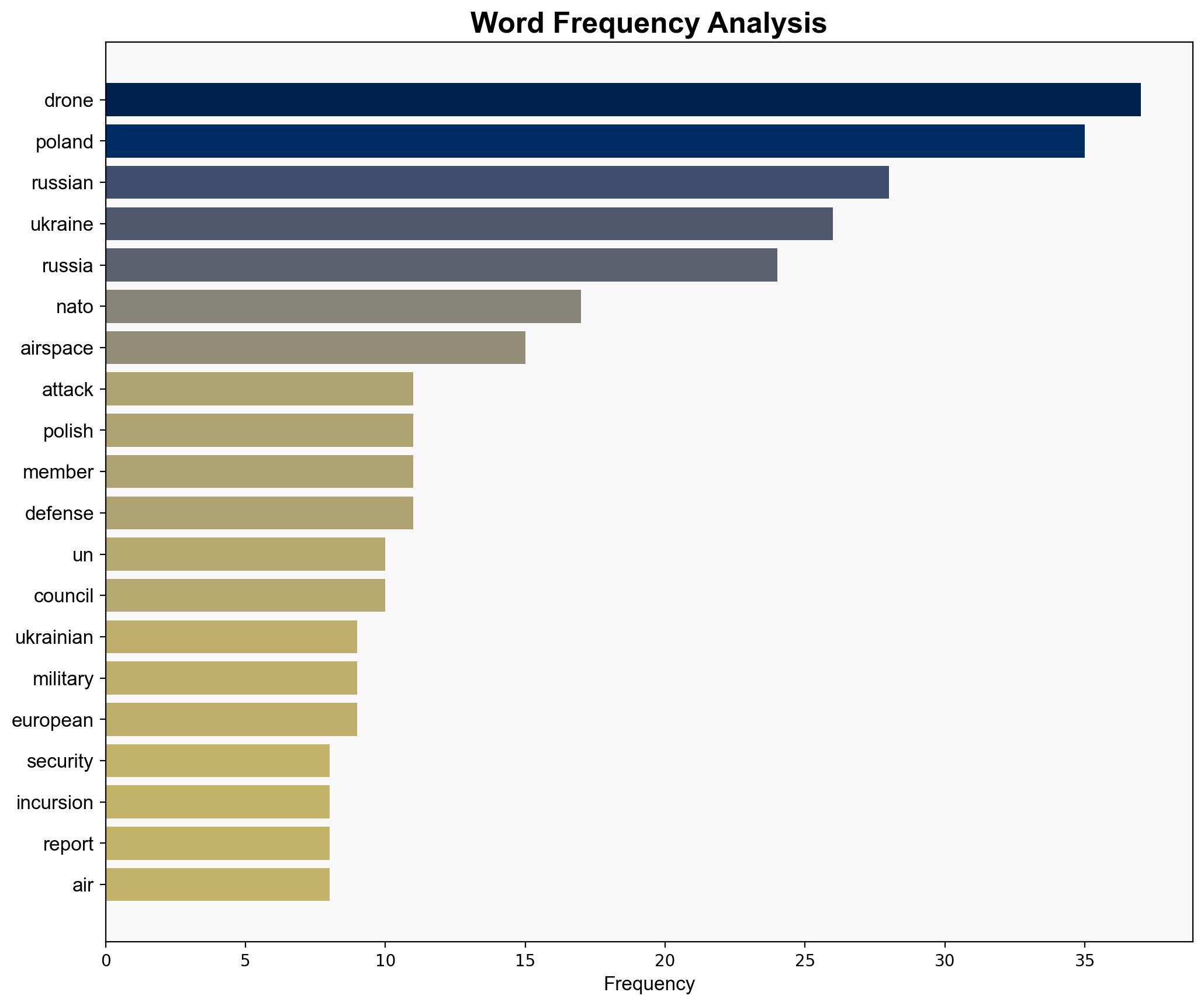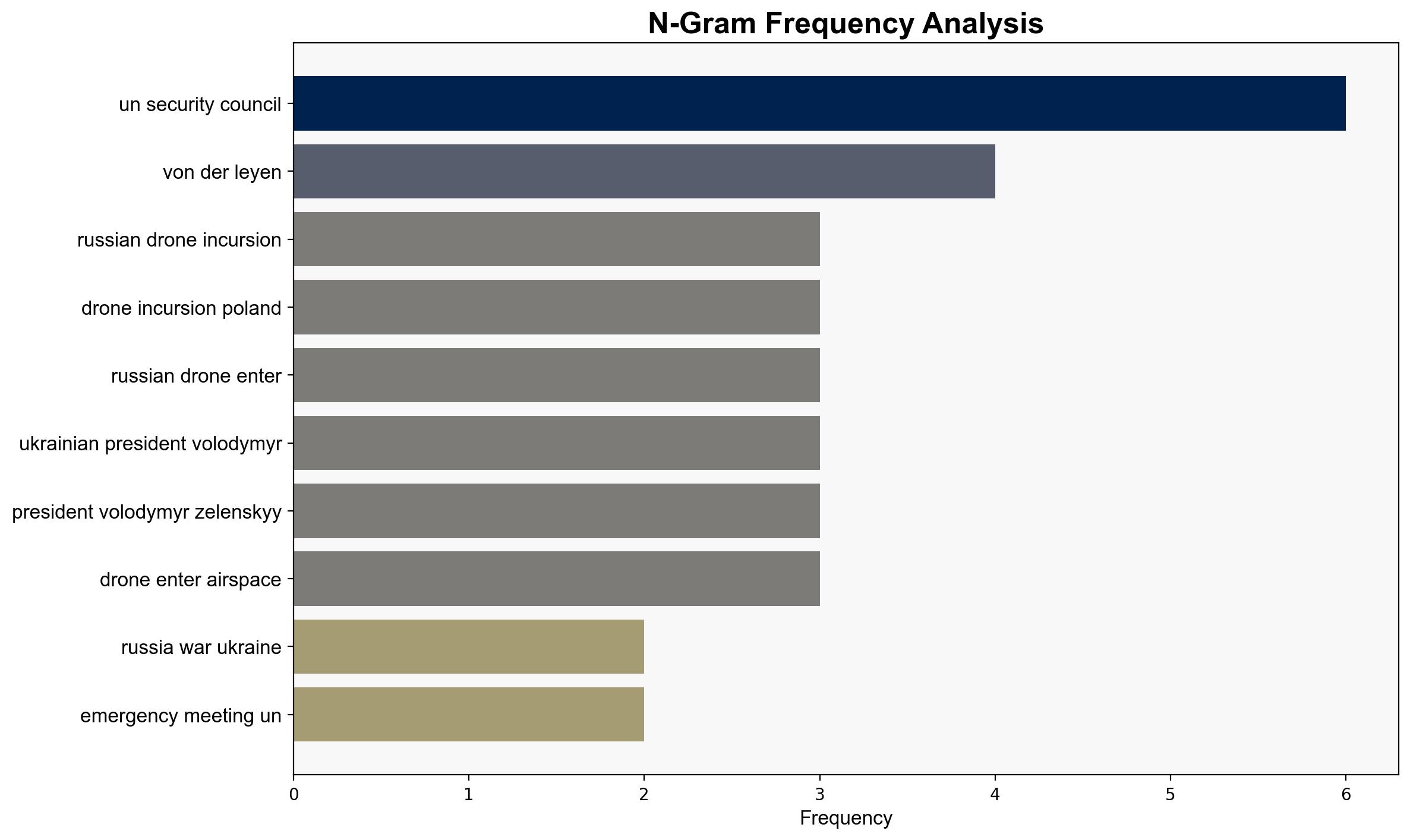Poland downs drones after Russian airspace violation – DW (English)
Published on: 2025-09-10
Intelligence Report: Poland downs drones after Russian airspace violation – DW (English)
1. BLUF (Bottom Line Up Front)
The most supported hypothesis is that the drone incursion into Polish airspace was a deliberate Russian provocation to test NATO’s response mechanisms. Confidence level: Moderate. Recommended action: Strengthen NATO’s air defense posture in Eastern Europe and increase diplomatic efforts to de-escalate tensions.
2. Competing Hypotheses
1. **Deliberate Provocation by Russia**: The drone incursion was a calculated move by Russia to test NATO’s response and gauge the alliance’s unity and resolve.
2. **Unintentional Incursion Due to Operational Error**: The drone entry into Polish airspace was an unintended consequence of a broader military operation targeting Ukraine, possibly due to navigational errors or technical malfunctions.
3. Key Assumptions and Red Flags
– **Assumptions**: The deliberate provocation hypothesis assumes Russia has strategic intent to escalate tensions with NATO. The unintentional incursion hypothesis assumes technical or human error without strategic intent.
– **Red Flags**: Lack of detailed technical data on the drone’s capabilities and flight path. Potential bias in interpreting Russian intentions based on historical context.
– **Inconsistent Data**: Conflicting reports on the extent of damage caused by the drones and the specific nature of the incursion.
4. Implications and Strategic Risks
– **Geopolitical**: Escalation of tensions between NATO and Russia, increasing the risk of broader conflict.
– **Economic**: Potential impact on regional markets due to heightened security concerns.
– **Cybersecurity**: Increased risk of cyber operations targeting critical infrastructure in response to military provocations.
– **Psychological**: Heightened public fear and uncertainty in Eastern Europe, potentially affecting political stability.
5. Recommendations and Outlook
- Enhance NATO’s air defense systems in Eastern Europe to deter further provocations.
- Engage in diplomatic dialogues with Russia to clarify intentions and reduce the risk of miscalculations.
- Scenario Projections:
- Best Case: Successful diplomatic engagement leads to de-escalation and improved communication channels.
- Worst Case: Continued provocations result in a military confrontation involving NATO forces.
- Most Likely: Ongoing low-level tensions with periodic provocations and diplomatic efforts to manage the situation.
6. Key Individuals and Entities
– Donald Tusk
– Emmanuel Macron
– Volodymyr Zelensky
– Antonio Guterres
7. Thematic Tags
national security threats, cybersecurity, counter-terrorism, regional focus





